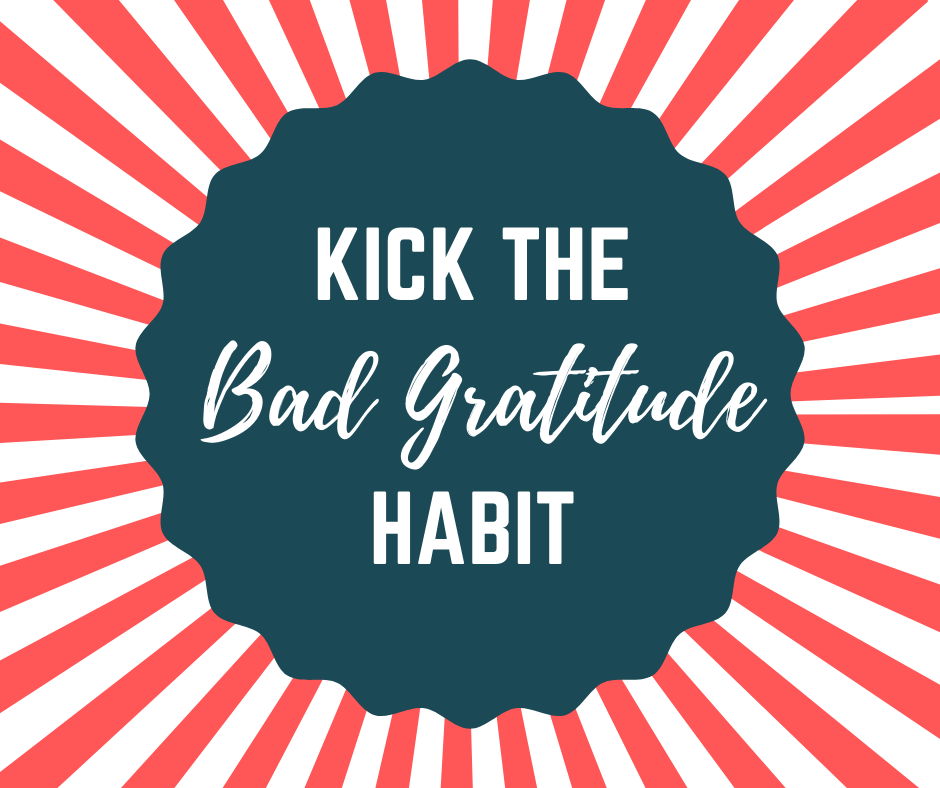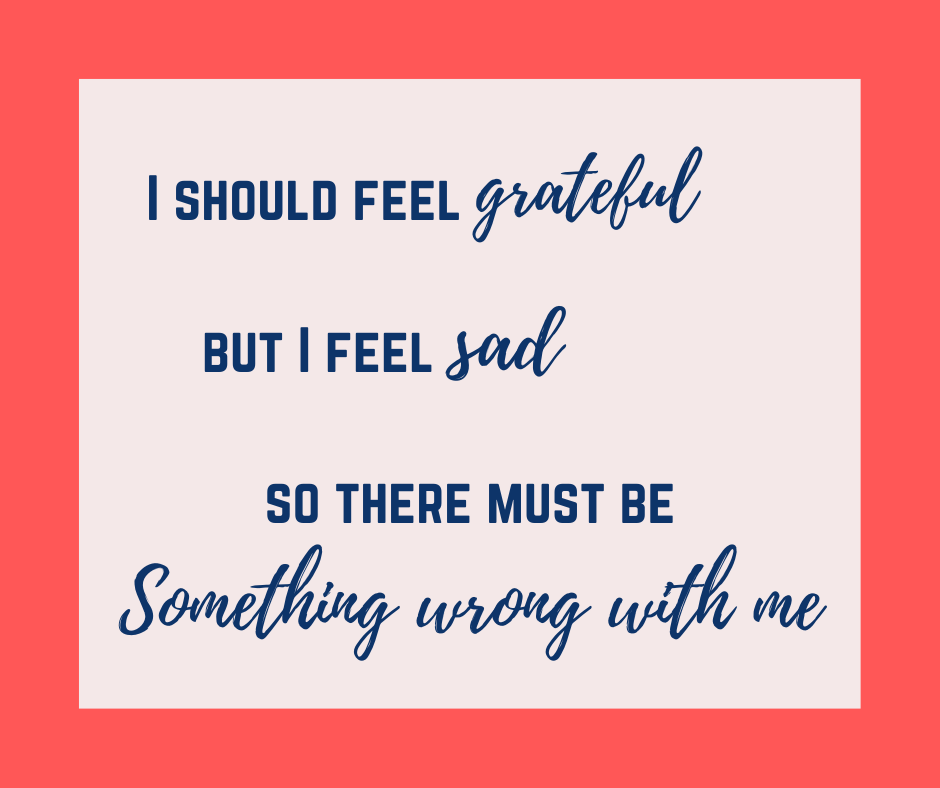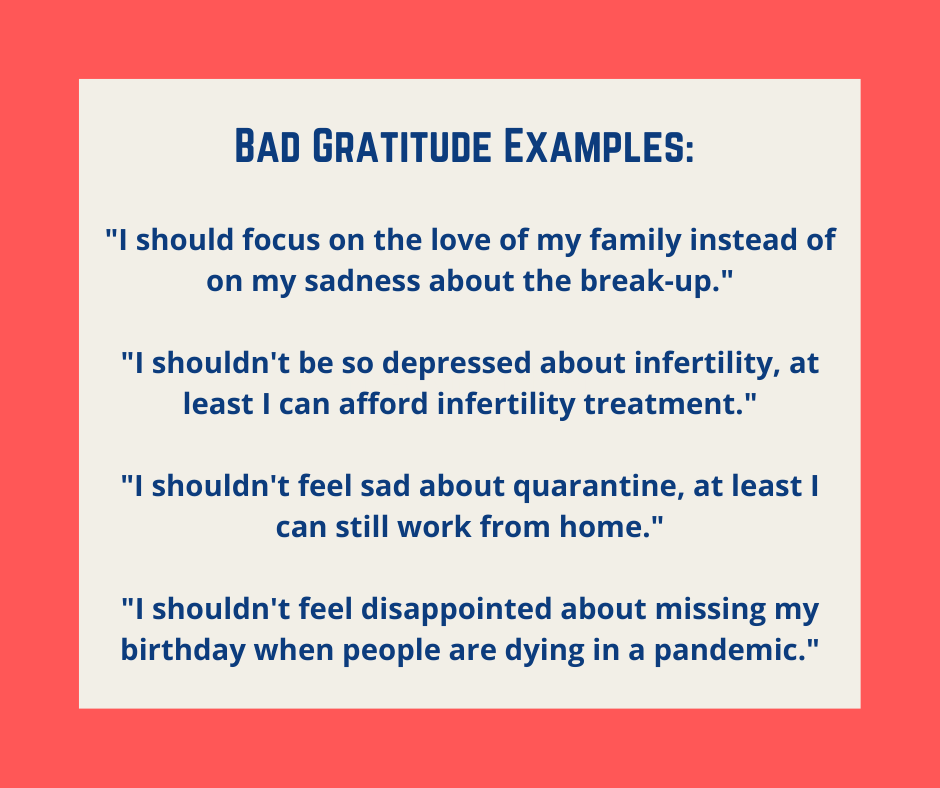|
There are two types of gratitude. One is what I call healthy or “good gratitude.” When we engage in good gratitude, we count our blessings and feel a sense of true appreciation. It’s a warm, peaceful feeling. And, it’s genuinely good for our mental health. The second kind of gratitude, “bad gratitude” is when we shame ourselves, or someone else, with blessings. You can often recognize bad gratitude because it starts with “I should feel…” or “I shouldn’t feel…” Another clue is the presence of the phrase “at least.” Bad gratitude makes us feel ashamed of our feelings. There is a feeling of being a gratitude failure, perhaps even a failure at your faith or values, for having negative emotions. I should feel grateful but I feel sad, so there must be something wrong with me. Right now, I’m hearing a lot of this bad gratitude from my clients during the COVID-19 crisis. The crisis has brought a bunch of losses, some monumental and some very small. With the small losses, we have a tendency to try to cancel them out with gratitude. We feel ashamed to be mourning small losses when others are facing monumental ones. These examples of bad gratitude show how, when we impose gratitude on ourselves in a shaming way, it only magnifies our negative emotion. When we’re upset but feel we SHOULD feel grateful, we end up feeling upset and guilty at the same time. Bad gratitude just makes things worse.
So what’s the solution? For me, I think it’s important to remind ourselves that we can hold many emotions at once. We can be grateful for our blessings and also hold disappointment or sadness about losses. Just because we have blessings doesn’t mean we can’t allow ourselves to recognize the small disappointments, inconveniences and losses in our lives. Instead of saying “I should be grateful” we can say “I am grateful AND I feel…” For instance, I am grateful that my family is healthy AND disappointed that my son’s birthday party won’t have any guests.” Sometimes, our disappointments are so great that we can’t tap into our feeling of gratitude. Again, instead of shaming ourselves with “I should feel grateful” we can transform that into “I wish I felt grateful” or “I want to feel more grateful.” The “should” brings shame, but the “wish” or “want” brings a sense of aspiring to deepen your sense of gratitude. The sentence “I wish I felt grateful but I just really need to process my sadness first” shows self-compassion. Genuine “good gratitude” is an important part of good mental health. So, meditate on your blessings. Start a daily gratitude journal. Just remember to give yourself the space to hold your other feelings too. <3 Sarah L. Wesch, Ph.D. Licensed Psychologist
0 Comments
|
Archives
April 2020
Categories |
Sarah L. Wesch, Ph.D. Licensed Psychologist
217 Southwind Place., Suite 201, Manhattan, KS 66503
Email: [email protected] Tel: (785)236-5147 Fax: (785)340-3049
217 Southwind Place., Suite 201, Manhattan, KS 66503
Email: [email protected] Tel: (785)236-5147 Fax: (785)340-3049
Contact Us
|
Current patients can view their accounts through my client portal.
|



 RSS Feed
RSS Feed